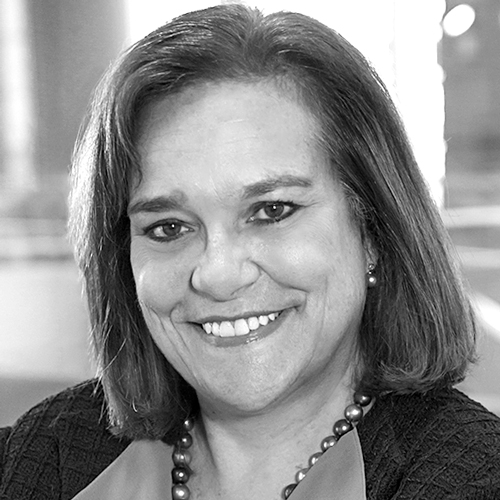When Dr. Jack Cox speaks of valuing every individual employee of the sprawling Providence St. Joseph Health (PSJH) healthcare network, he is not merely trading in platitudes. Cox speaks from experience. As a young man in Knoxville, Tennessee, he first worked in environmental services at Fort Sanders Presbyterian Hospital to put himself through college.
One of his responsibilities included cleaning rooms, and he realized the key role of all healthcare professionals is the well-being and safety of patients. “If an infected patient leaves a room that is not properly cleaned, it jeopardizes the safety of the next patient using that room,” Cox notes. “Healthcare is a team sport. Every single employee contributes to the standard of care and to the hospital mission.”
As he discusses his new responsibilities as senior vice president and chief quality officer at PSJH, it is clear that the scale of this 100,000-caregiver and fifty-hospital operation does nothing to diminish his passionate concern for the welfare of each patient. “Everyone who works at a hospital is a caregiver,” Cox says. “Even if you are not providing care to the patients directly, you’re caring for those who do. That’s important.”
Cox followed his early mop-pushing days with a medical education at the University of Mississippi School of Medicine. After his eight-year US Air Force stint, which included a tour in England as the chief of clinical services and a teaching assignment at Travis Air Force Base, Cox was recruited to run a family practice residency program in Pennsylvania, followed by the development of a residency program at Intermountain Healthcare’s Utah Valley Medical Center.
“The Latin root for ‘doctor’ means to teach. The doctor’s role is always to be teaching and developing others.”
“Every job I’ve ever taken could be described as something that I haven’t done before,” Cox says. “You have to trust what skills you have, always look to learn new ones, and learn how to apply them to new challenges.”
Teaching and learning are one and the same in his philosophy. “It is fundamentally our responsibility to train new physician leaders,” he adds. “The Latin root for ‘doctor’ means to teach. The doctor’s role is always to be teaching and developing others.”
His studies, teaching, and leadership brought Cox all over the country, and he picked up extensive systems experience and a business degree from Tulane University along the way. In Utah, he met Dr. Brent James, a trailblazer in clinical quality with whom Cox worked to develop and implement one of the first residency curricula that emphasized quality and performance improvement skills.
These lessons served Cox well in his next role as senior vice president and chief medical officer for Premier, an alliance of 2,000 nonprofit hospitals, where he created its first Clinical Performance Improvement department and developed and implemented its strategic direction.
Once again learning at the feet of other pioneers in healthcare quality and safety, including Dr. Don Berwick, Dr. Gene Nelson, Maureen Bisognano, and Carol Haraden, Cox’s team developed a method of identifying leading practices in specific clinical conditions and procedures, while sharing this knowledge through a collaborative model.
The successes of this program led to the health quality improvement demonstration with CMS, a pioneer pay-for-performance model. Decreasing variation and improving the reliability of care was a driving force for this successful model. As Cox explains: “There is a false assumption that every person is different, that you can come to expect variation in the care provided. But it simply isn’t the case.” He believes that each patient should come to expect—and receive—safe and excellent care at every step along the way.
After sixteen months as the senior vice president and chief medical officer, Cox switched roles to join the team tasked with guiding the St. Joseph Health and Providence Health & Services organizations through a major partnership merger, acting as the newly minted senior vice president and chief quality officer of PSJH. He is quick to note that this process is running smoother than many for a rather high-minded reason: the shared missions and values of the founding Sisters of St. Joseph of Orange and the Sisters of Providence align beautifully. Both orders emphasize service, access, and affordability. Generosity and excellence are crucial to Cox’s work, and his unique array of vantage points and work experiences in both lead and support roles help him to make these values tangible in each and every patient interaction that takes place.
PSJH now comprises a major system of integrated medical services, which provide an array of healthcare services to more than twenty-two million people in seven states. The one factor this development makes certain is that Cox’s agile and energetic administrative talents will have a directly positive impact on millions of Americans, bringing professional support and excellent care to patients, doctors, and caregivers alike.

